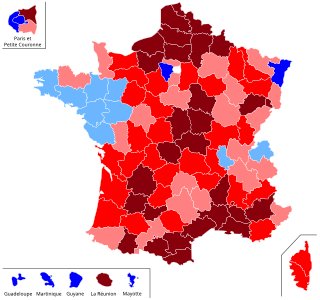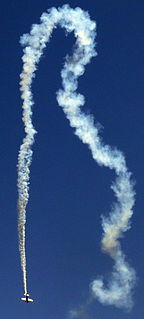Since the introduction of parliamentarism in Sweden, six national referendums have been held. Legal provisions for referendums were introduced in 1922, one year after the adoption of universal suffrage. The Constitution of Sweden provides for binding referendums, but all referendums held as of 2012 have been non-binding. The latest referendum, on adopting the euro, was held on 14 September 2003.

Referendums in the United Kingdom are occasionally held at a national, regional or local level. National referendums can be permitted by an Act of Parliament and regulated through the Political Parties, Elections and Referendums Act 2000, but they are by tradition extremely rare due to the principle of parliamentary sovereignty meaning that they cannot be constitutionally binding on either the Government or Parliament, although they usually have a persuasive political effect.

Party Order and Justice, formerly the Liberal Democratic Party, is a right-wing national-conservative political party in Lithuania that self-identifies as 'left-of-centre'. It has eleven members in the Seimas, the unicameral Lithuanian parliament.

This is a list of referendums related to the European Union, or referendums related to the European Communities, which were predecessors of the European Union. Since 1972, a total of 48 referendums have been held by EU member states, candidate states, and their territories, with several additional referendums held in countries outside of the EU. The referendums have been held most commonly on the subject of whether to become a member of European Union as part of the accession process, although the EU does not require any candidate country to hold a referendum to approve membership or as part of treaty ratification. Other EU-related referendums have been held on the adoption of the euro and on participation in other EU-related policies.

Elections in Lithuania gives information on elections and election results in Lithuania.

A referendum on the treaty establishing a Constitution for Europe was held in Spain on 20 February 2005. The consultative referendum on ratification of the proposed Constitution of the European Union was approved by 81.8% of voters, although turnout was just 41.8%, the lowest since the end of the Franco era.

A consultative referendum on the Treaty establishing a Constitution for Europe was held in the Netherlands on 1 June 2005 to decide whether the government should ratify the proposed Constitution of the European Union. The result was a "No"-vote.

The French referendum on the Treaty establishing a Constitution for Europe was held on 29 May 2005 to decide whether France should ratify the proposed Constitution of the European Union. The result was a victory for the "No" campaign, with 55% of voters rejecting the treaty on a turnout of 69%.
Referendums in Ukraine, according to the Ukrainian Constitution, are one of the lawful forms of expression of people's will.
Events from the year 2003 in the European Union.
The 2003 Estonian European Union membership referendum took place on 14 September 2003 to decide whether Estonia should join the European Union (EU). Just over two-thirds of voters voted Yes and Estonia joined the EU on 1 May 2004.

A referendum on European Union membership was held in Latvia on 20 September 2003. Latvia was the last of the states which would join the EU in 2004 to hold a referendum on the issue. Just over two-thirds of voters voted Yes and Latvia joined the EU on 1 May 2004.

A referendum on European Union membership was held in Malta on 8 March 2003. A narrow majority voted in favour of joining but the opposition Labour Party rejected the results. The victory of the Nationalist Party in the 2003 general election confirmed the result of the referendum and Malta joined the EU on 1 May 2004.
A referendum on joining the European Union was held in Hungary on 12 April 2003. The proposal was approved by 83.8% of voters, with a voter turnout of 45.6%. Hungary subsequently joined the EU on 1 May 2004.
Five referendums were held in Switzerland during 2005. The first two were held on 5 June on Switzerland joining the Schengen Area and whether registered partnerships for same-sex couples should be introduced. Both questions were approved. The third was held on 25 September on a federal resolution on extending the agreement on free movement of people to new members of the European Union, and was also approved. The final two were held on 27 November on a popular initiative "for food from an agriculture free of genetic modification" and on a labour law related to the opening times of shops in public transport hubs. Both were approved.

A referendum on the EU accession of the Republic of Croatia was held on 22 January 2012. Croatia finished accession (membership) negotiations on 30 June 2011 and signed the Treaty of Accession on 9 December 2011, setting it on course to become the bloc's 28th member state. The Constitution of Croatia requires that a binding referendum be held on any political union reducing national sovereignty, such as via European Union membership. On 23 December 2011 the Croatian Parliament made a preliminary decision on EU accession and determined that the referendum would be held on 22 January 2012. The 2012 Croatian EU accession referendum was the first referendum held in Croatia since the Croatian independence referendum held more than 20 years earlier, in 1991.
The People's Pledge was a political campaign to secure a referendum on the United Kingdom's membership of the European Union. It aimed to achieve this by asking voters to sign a pledge that they would use their vote to help secure a majority of Members of Parliament (MPs) in support of an in-out referendum on EU membership. The 1975 European Communities membership referendum was the last time such a vote had occurred in Britain.

The European Union Referendum Act 2015(c. 36) is an Act of the Parliament of the United Kingdom that made legal provision for a pre-legislative referendum to be held in the United Kingdom and Gibraltar, on whether it should remain a member state of the European Union or leave it. The bill was introduced to the House of Commons by Philip Hammond, Foreign Secretary on 28 May 2015. Two weeks later, the second reading of the Act was supported by MPs from all parties except the SNP; the Act subsequently passed on its third reading in the Commons on 7 September 2015 and was approved by the House of Lords on 14 December 2015, and given Royal Assent on 17 December 2015 and came partly into force on the same day and came into full legal force on 1 February 2016.

The referendum on EU membership took place on 23 June 2016. Opinion polling for the United Kingdom European Union membership referendum was ongoing in the months between the announcement of a referendum and the referendum polling day. Polls on the general principle of Britain's membership of the European Union were carried out for a number of years prior to the referendum. Opinion polls of voters in general tended to show roughly equal proportions in favour of remaining and leaving. Polls of business leaders, scientists, and lawyers showed majorities in favour of remaining. Among non-British citizens in other EU member states, polling suggested that a majority were in favour of the UK remaining in the EU in principle, but that a similarly sized majority believed that if the UK were only able to remain in the EU on renegotiated terms then it should leave.

Euroscepticism is a minority view in Ireland, with opinion polls between 2016 and 2019 indicating between 70% and 90% support for continued membership of the European Union (EU).




















